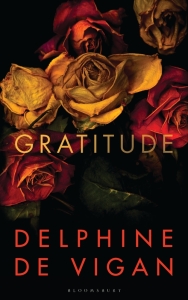June 20, 2021 · 6:34 p.m.
After a long hiatus, I’ve been reading more translation books lately, including some recently published titles. There is no such thing as easy work by Kikuko Tsumura Polly Barton has translated from Japanese and sees an unnamed woman in her 30s joining an employment agency looking for a job with the following characteristics: she is close to home, does not have to read or write, and, if possible, very few. thinking. The book follows essays in five different roles: surveillance, recording voice announcements for buses, writing funny data to print on cracker papers, putting up posters, and park maintenance. Tsumura wrote her first novel after her work-out experience, and she gets a sense of instability, just as you count the days until you have the right to claim your pension. With a terrific humor and a bit of magical realism, it ends up being a pointless novel overall, but it’s still a pretty compelling reflection on the meaning of job satisfaction, especially in the context of Japanese workplace culture, known for its extreme presentism. .

The books were first published in Denmark between 1969 and 1971 and were recently published in English for the first time in a 380-page volume. “Childhood” captures Ditlevsen’s life when he grew up in the working class in Copenhagen in the 1920s, “Youth” focuses on his relationships at a young age, and “Addiction” is the hardest part of his marriage while dealing with serious drug addiction problems. one of her four husbands, a sociopathic doctor who constantly puts on gas. Ditlevsen’s prose is straightforward and observant, and he has made many comparisons with Elena Ferrante’s Naples novels, especially in his childhood ambitions not to end up as parents. Karl Ove is also a bit reminiscent of Knausgaard’s outspoken and confessional style, but thankfully the result is much more accurate.
 Translated from the French by George Miller, Thanks to Delphine de Vigan It is a short novel about an elderly woman named Michka, who lives in a foster home in Paris, and who is suffering from aphasia, a loss of speech. She has two frequent visitors: speech therapist Jerôme, and Michka, who has known her neighbor Marie for many years. The traumatic events of Michka’s past are gradually emerging, and her confusion with words and her struggle to express her thoughts and memories will bring Miller some interesting translation challenges. De Vigan is generally known for writing novels closer to the thriller genre, such as Based on a True Story, but his latest book, translated into English, is a rigorous work about the end of life written with compassion. Thanks to Bloomsbury for submitting a review copy.
Translated from the French by George Miller, Thanks to Delphine de Vigan It is a short novel about an elderly woman named Michka, who lives in a foster home in Paris, and who is suffering from aphasia, a loss of speech. She has two frequent visitors: speech therapist Jerôme, and Michka, who has known her neighbor Marie for many years. The traumatic events of Michka’s past are gradually emerging, and her confusion with words and her struggle to express her thoughts and memories will bring Miller some interesting translation challenges. De Vigan is generally known for writing novels closer to the thriller genre, such as Based on a True Story, but his latest book, translated into English, is a rigorous work about the end of life written with compassion. Thanks to Bloomsbury for submitting a review copy.
Filed under Books






